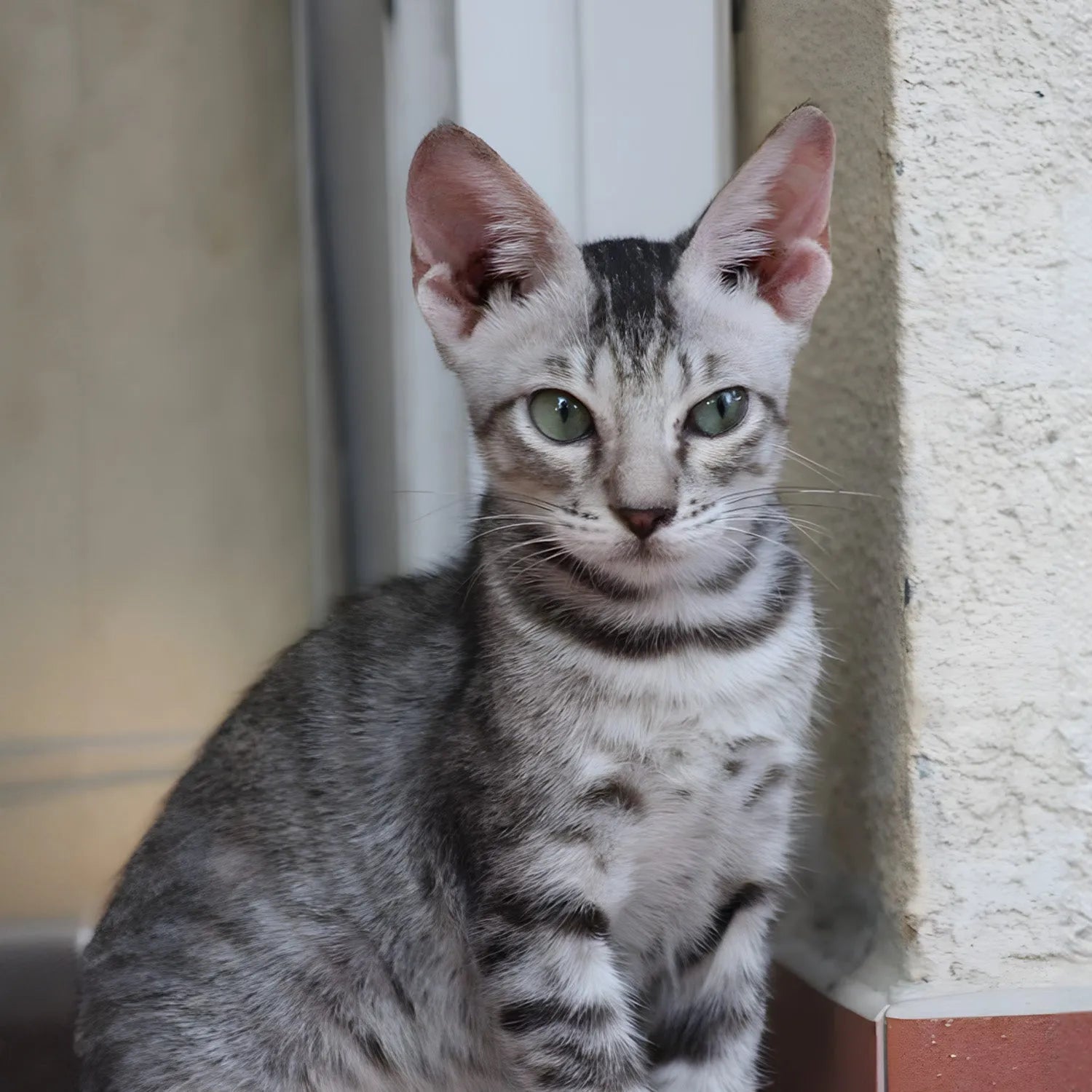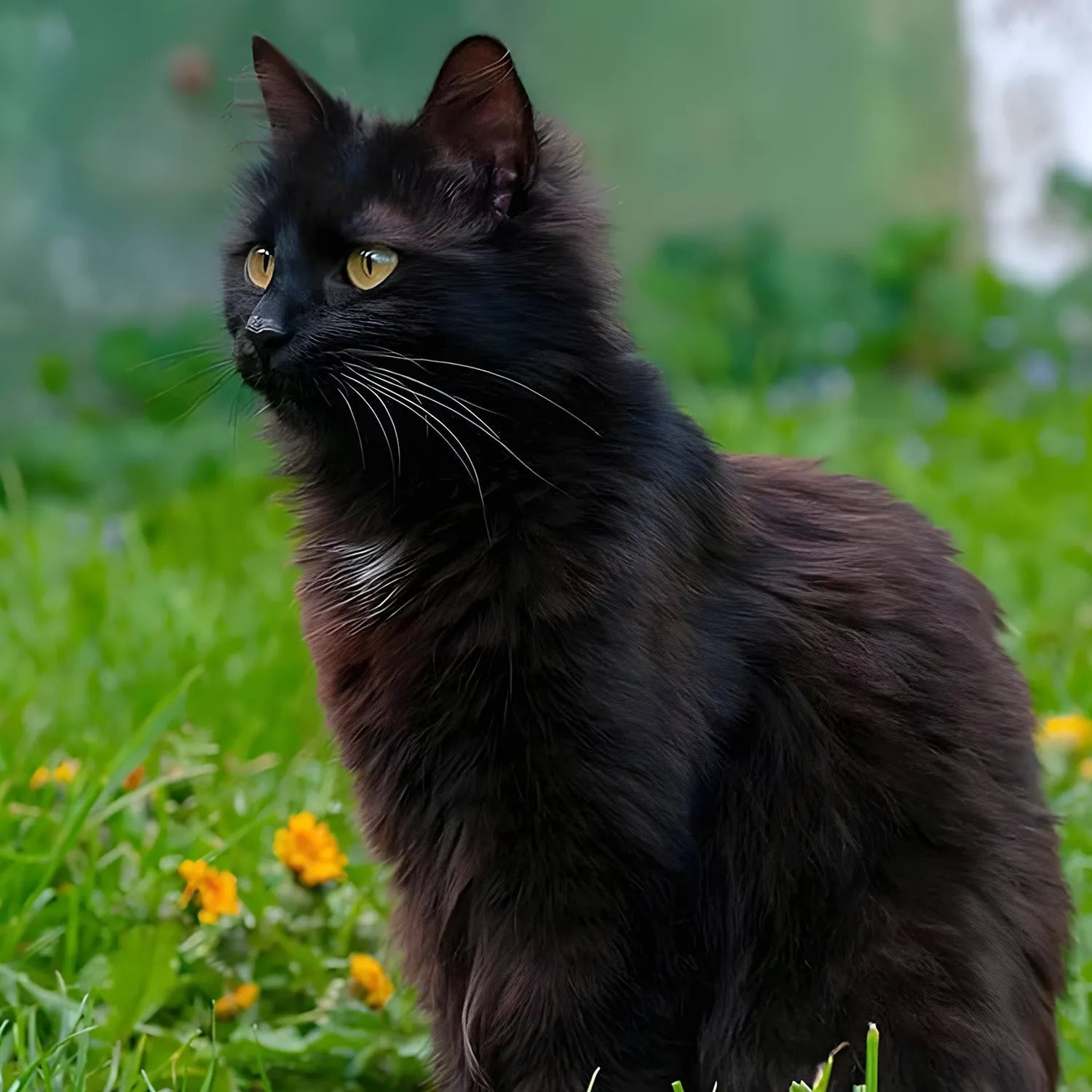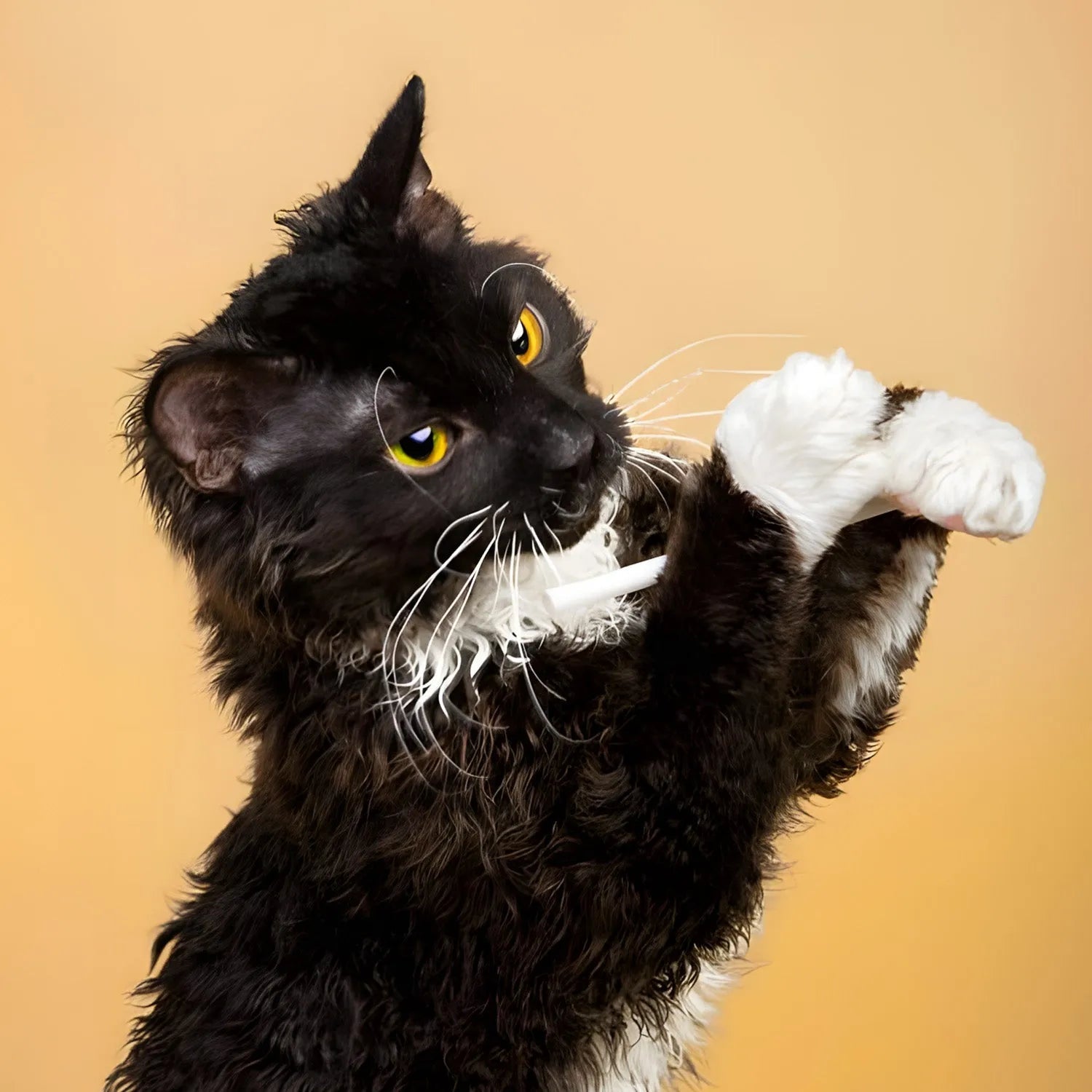Korat: The Silver-Coated, Good Luck Feline from Thailand
Introduction
The Korat cat is a symbol of prosperity and good fortune in Thailand, often given as a wedding gift to bless newlyweds with luck. Known for its silver-blue coat, luminous green eyes, and heart-shaped face, the Korat is as stunning as it is affectionate. This breed is not only loved for its beauty but also for its gentle and affectionate nature. Highly intelligent and people-oriented, the Korat forms strong bonds with its human companions, making it an ideal pet for those looking for a loyal and loving cat. In this blog, we’ll explore the Korat’s lifestyle, behavior, grooming needs, trainability, and how it interacts with humans and other pets.
Ratings (1-5)
-
Environmental Adaptability: 4
-
Food Consumption: 3
-
Need for Companionship: 5
-
Trainability: 4
-
Tolerance of Children: 4
-
Ease of Domestication: 5
History and Origins
The Korat cat hails from Thailand and has a rich history that dates back hundreds of years. This breed is highly regarded in Thai culture and is often associated with wealth, prosperity, and good luck. Traditionally, Korats were not sold but gifted, particularly to newlyweds, as a blessing of good fortune. The Korat first arrived in the United States in the 1950s and was recognized as a breed by major cat associations in the 1960s. Though still relatively rare, the Korat has a devoted following, especially among cat lovers who appreciate its combination of beauty, intelligence, and affectionate nature.
Physical Characteristics and Colors
The Korat is a medium-sized cat with a muscular, compact build. Its most distinctive feature is its shimmering, silver-blue coat, which is short and fine, lying close to the body. The Korat’s coat has a unique sheen, giving it a silver halo effect in natural light. Another striking characteristic of the Korat is its large, luminous green eyes, which stand out against its blue coat. Young Korats may have amber eyes that turn green as they mature. The head is heart-shaped, with large, high-set ears and a strong chin, giving the Korat an alert and expressive look. Unlike many breeds, the Korat has no specific color varieties and is always blue-silver.
Lifestyle and Behavior
Korats are known for their gentle, affectionate personalities. They form strong bonds with their human companions and are known for being highly loyal and people-oriented. Korats enjoy being close to their owners and often follow them from room to room, eager to be involved in family activities. They are not overly vocal but will communicate with soft chirps and meows when they want attention. Korats are sensitive and intuitive cats, often attuned to their owners’ moods. While they enjoy playtime, they are also perfectly content to curl up in a lap for a long nap, making them excellent companions for both active and quieter households.
Trainability and Intelligence
Korats are intelligent cats that can be trained to follow basic commands, perform tricks, and even walk on a leash. They respond well to positive reinforcement, such as treats and praise, and enjoy interactive toys and games that challenge their minds. Because they are highly social and people-oriented, Korats thrive in environments where they can engage in activities with their owners. They enjoy solving puzzles and playing games that involve chasing or hunting. While they are quick learners, Korats also have an independent streak, so training sessions should be kept fun and engaging to maintain their interest.
Social Behavior and Human Interaction
Korats are incredibly social and form deep bonds with their human families. They are affectionate cats that enjoy being close to their owners and are happiest when they are involved in daily activities. Korats are often described as "velcro cats" because they love to follow their owners around the house and will often seek out attention. While they are not as vocal as some other breeds, Korats are known for their expressive eyes and body language, using purrs, chirps, and soft meows to communicate with their owners. Korats thrive in homes where they can receive plenty of love and companionship, making them ideal for individuals or families who enjoy spending time with their pets.
Compatibility with Children and Other Pets
Korats are excellent companions for children due to their gentle and patient nature. They enjoy interactive play and are generally tolerant of children’s antics, provided they are treated with respect. However, they tend to form strong bonds with one or two individuals in the household, often becoming deeply attached to a particular person. Korats also tend to get along well with other pets, including dogs, as long as they are properly introduced. Their sociable and adaptable nature allows them to integrate well into multi-pet households, though they may prefer being the center of attention in smaller, quieter homes.
Grooming and Care
The grooming needs of a Korat are minimal due to their short, sleek coat. Weekly brushing is usually sufficient to remove loose hairs and keep their coat looking healthy and shiny. Because their coat is short and fine, it does not mat easily, making the Korat a low-maintenance breed in terms of grooming. Regular dental care, ear cleaning, and nail trimming are also important to maintain their overall health. Despite their low-maintenance grooming needs, Korats enjoy the bonding time that grooming sessions provide, and it can be a great way to strengthen the bond between cat and owner. Bathing is generally not necessary unless the cat gets particularly dirty, as Korats are good at keeping themselves clean.
Health and Lifespan
Korats are generally healthy, but like all breeds, they can be prone to certain genetic conditions. One of the most common issues associated with the breed is a genetic disorder known as gangliosidosis, which affects the nervous system. Fortunately, responsible breeders screen for this condition to reduce its prevalence. Regular veterinary check-ups and a balanced diet are essential to maintain their health. With proper care, Korat cats can live up to 15-20 years or more, making them a long-term companion for cat lovers. Regular monitoring and preventive care are important to ensure a long and healthy life for your Korat cat.
Environmental Adaptability
Korats are adaptable cats that can thrive in various living environments, although they are particularly well-suited to indoor living due to their sensitive nature and attachment to their owners. They are known for their resilience and can adjust well to different climates and household settings. Whether in an apartment or a house, Korats will find ways to entertain themselves and stay comfortable. However, they do best in environments where they can receive plenty of attention and interaction from their owners. Their adaptable nature makes them well-suited to a wide range of living conditions, but they are happiest in homes where they can be close to their human companions.
Feeding Requirements
A balanced diet is crucial for maintaining the Korat cat's health and energy levels. High-quality cat food that is rich in protein is recommended. Fresh water should always be available. Because Korats are active and playful, they may require more calories than less active breeds to support their energy levels. Consult your veterinarian for specific dietary recommendations based on your cat's age, weight, and health needs. Monitoring their diet to prevent obesity is important, as Korats can be prone to overeating if not properly managed.
Conclusion
The Korat is a beautiful, affectionate breed that brings elegance, intelligence, and good fortune to any household. Their strong bonds with their human companions, coupled with their gentle nature, make them wonderful pets for families and individuals alike. If you're looking for a cat that will form a deep, loving connection with you and provide years of companionship, the Korat might be the perfect fit for you.
For more information about other cat breeds and pet care tips, stay tuned to our blog!
References:
-
Somchai, V. (2021). "The Korat: A Good Luck Cat from Thailand." *Journal of Feline Studies*, 35(3), 201-215.
-
Richards, A. (2020). "Caring for Your Korat Cat: A Comprehensive Guide." *Cat Lover’s Magazine*, July issue, pp. 30-40.
-
Harris, E. (2019). "Health and Wellness in Korat Cats." *Veterinary Journal*, 79(2), 123-137.


